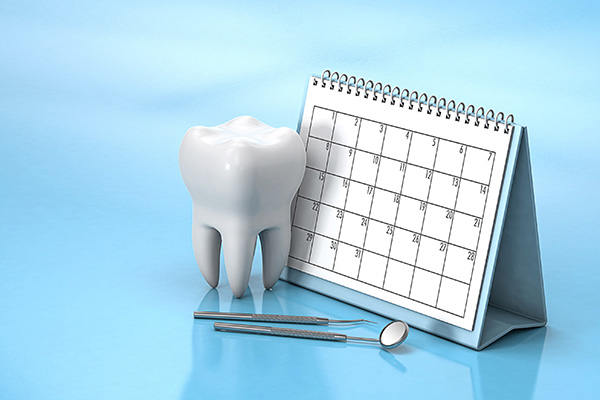Commonly Asked Questions About Wisdom Tooth Extractions
There are notable benefits to , and understanding when it is recommended and what to expect throughout the treatment and aftercare process can help you ease any anxieties that you have ahead of your scheduled consultation or wisdom tooth extraction procedure.
Wisdom tooth extraction FAQs
The most common questions patients have about wisdom tooth extractions deal with the purpose of the procedure, the risks involved with not removing wisdom teeth, and what the procedure and aftercare process involve. This review answers these related questions and more to provide you with the information you need before your next dental visit.
What are wisdom teeth?
Let's start with the basics. Wisdom teeth, or third molars, are a set of molars in the very back of the mouth. There are a total of four wisdom teeth, one in each quadrant of the mouth. They are also the last set of teeth to emerge. In fact, they usually do not emerge until 5 to 10 years after the rest of the permanent teeth emerge.
By the time they emerge, the patient already has a full set of functional teeth. Since wisdom teeth are also the largest teeth in the mouth, there is not always enough room inside the jaw for them. In other cases, there may be enough room, but they are growing in sideways rather than vertically, pushing against the second molars as they come through (more on this below).
Why do dentists recommend removing wisdom teeth?
Wisdom tooth extraction can either be necessary or elective to prevent concerns in the future. Often, dentists recommend removing wisdom teeth to prevent or deal with:
- Tooth pain
- Gum complications
- Oral infections
- Overcrowding
- Impacted teeth
Wisdom teeth that grow sideways or emerge when there is not enough space in the jaw can damage other teeth and gums. It can also make orthodontic treatment more challenging, which is why dentists typically recommend wisdom tooth extraction before orthodontic care.
What are the risks of not removing wisdom teeth?
As mentioned, wisdom teeth that do not emerge properly may increase the risk of gum disease, oral infections, and tooth damage. They may also make it difficult during orthodontic care or make alignment issues worse. Wisdom teeth are also vulnerable to decay as they are harder to reach while brushing and flossing.
Is the wisdom teeth removal procedure painful?
The wisdom teeth procedure does not typically cause discomfort during the procedure itself as the dentist can use a numbing agent and sedation. However, there may be some discomfort following the procedure once the sedation wears off. The pain should not be severe and can be managed with good oral hygiene, rest, and pain relief medication.
How long does it take to recover after wisdom tooth extraction?
It can take several days up to more than a week to recover after wisdom tooth extraction. It is important to reduce the risk of irritating the affected area by keeping the mouth clean and eating a soft diet. It is also important to take a few days off from sports and other physical activities as well.
What foods are good to eat during the recovery period?
It is important to eat a soft diet during recovery. This can include scrambled eggs, oatmeal, and yogurt. Ice cream that is low in sugar and milkshakes are acceptable as well, but it is important to limit the consumption of food that is hot (e.g. soup). It is helpful to drink water throughout the day as well to wash away bacteria and food.
Do I need a follow-up visit after wisdom tooth extraction?
After your surgical procedure to remove wisdom teeth, the dentist (or oral surgeon) may recommend a follow-up visit. This is to ensure the mouth heals properly. It is also important to notify the dentist anytime unusual or severe symptoms develop, such as extreme swelling of the gums. This could indicate a possible infection or another oral health concern that needs to be addressed immediately. It is important to follow the aftercare plan provided by the dental staff.
Learn more about wisdom tooth extraction from our dental team
Here at our dental practice, we assist our patients through the wisdom tooth extraction experience, ensuring they have their questions answered and feel comfortable and confident throughout the process. Contact us today if your wisdom teeth are causing problems or if you would like to learn more about the benefits of having them removed before problems develop.
Request an appointment here: https://cosmeticdentistdallastx.com or call Lalangas Family Dentistry at (972) 534-6008 for an appointment in our Dallas office.
Check out what others are saying about our dental services on Yelp: .
Related Posts
A tooth extraction might be necessary for multiple instances. The tooth comes out of the patient’s mouth because of an infection or other reasons. A dentist tries to keep the teeth intact as long as possible, but not every tooth can be saved. Keep reading to learn more about why you might need an extraction.Tooth…
For patients who have been suffering from a damaged or infected tooth, finally getting the tooth extracted can feel like a relief. However, bleeding after a tooth extraction can be worrisome and inconvenient. Before a patient undergoes a tooth extraction, it can be helpful to know what to expect in terms of bleeding.After a tooth…
Dental bridges are one of the most preferred options for replacing missing teeth. As the name suggests, dental bridges bridge the gaps left by one or more lost teeth. This is a guide to your dental bridge options, types, and benefits.A dental bridge is a prosthetic bridge that replaces one or more missing teeth. It…
Participating in sports is a fun and healthy hobby, but it can lead patients to search for options for replacing missing teeth. Unfortunately, losing teeth due to a sports injury is common, especially in contact sports. Fortunately, there are solutions for restoring your smile.A single tooth replacement (crown), fixed partial or complete denture, or maxillofacial…


